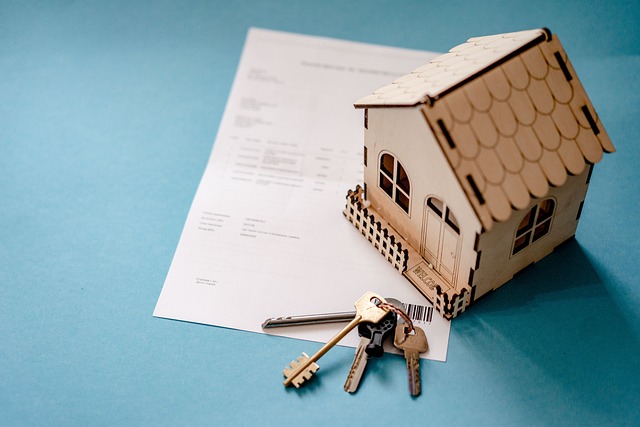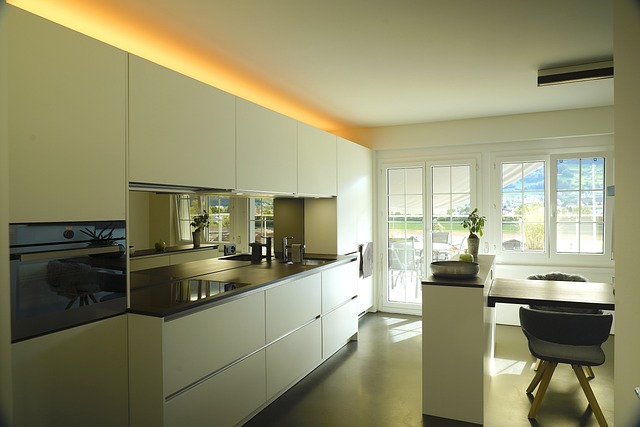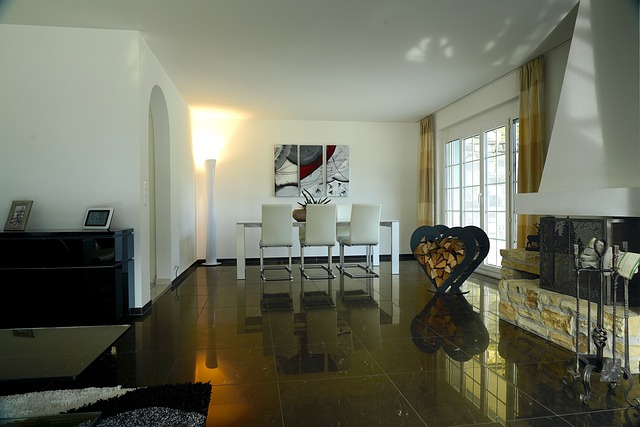Executive Condo Resale Eligibility in Singapore is governed by a set of criteria that include adherence to the Minimum Occupation Period (MOP), the remaining lease term, income ceilings, and financial regulations like the Total Debt Servicing Ratio (TDSR) and Loan to Value Ratio (LTVR). These factors are essential for both buyers and sellers in the resale market, as they influence the affordability, market value, and long-term viability of EC units. Prospective buyers must meet these requirements and consider policy changes over time to ensure their investment aligns with the evolving landscape of Singapore's housing policies. Keeping abreast of these regulations is crucial for anyone looking to purchase or sell an Executive Condo resale, as they significantly affect the property's eligibility and potential resale value.
Exploring the nuances of real estate in Singapore, a discerning buyer or investor often confronts the decision between an Executive Condominium (EC) on leasehold or freehold terms. This article demystifies the unique status of ECs, their resale eligibility criteria, and delves into the pivotal aspects of owning leasehold versus freehold properties within this category. With a comprehensive analysis of market trends, financing options, and long-term implications, we guide you through the intricacies of purchasing an EC on the resale market. From understanding the Deferred En-bloc Sale Scheme (DESS) to maximizing your investment, each section offers valuable insights tailored for both first-time buyers and seasoned investors. Navigate the complexities of EC resale eligibility and make an informed decision that aligns with your property aspirations in Singapore’s dynamic housing landscape.
- Understanding Executive Condominiums (ECs) and Their Unique Status
- Resale Eligibility for Executive Condos: A Comprehensive Guide
- Leasehold vs Freehold: Key Differences in Ownership Terms
- The Appeal of EC Resales: Market Trends and Opportunities
- Factors Influencing the Decision Between Leasehold and Freehold ECs
- Financing Your Executive Condo Resale: Loan and Mortgage Considerations
- The Resale Process: What to Expect When Buying an EC
- Long-Term Implications of Choosing a Leasehold vs Freehold EC
- The Role of TDSR and LTVR in EC Resales
- Future Potential: How Changes in Housing Policies Affect ECs
Understanding Executive Condominiums (ECs) and Their Unique Status

Executive Condominiums (ECs) in Singapore represent a unique housing option that blends the features of both public and private housing. These properties are designed to offer first-time homeowners a step up from HDB flats while providing the facilities and lifestyle associated with condominium living. Upon fulfilling the minimum occupation period, ECs allow owners to sell their units on the open market, a privilege not afforded to standard public housing. This resale eligibility opens up the EC option to a broader pool of buyers and sellers, enhancing its appeal and liquidity compared to other forms of housing. The eligibility criteria for purchasing an EC resale unit are distinct: applicants must meet the income ceilings, be Singapore citizens, and either be second-time EC applicants or current HDB flat owners who have fulfilled their minimum occupation period. This makes ECs particularly attractive to young families aspiring for more space without immediately entering the freehold market. Understanding the nuances of EC resale eligibility is crucial for potential buyers and sellers, as it dictates the opportunities and limitations within this housing type. Prospective owners should thoroughly research and consider these regulations to navigate the EC resale landscape effectively.
Resale Eligibility for Executive Condos: A Comprehensive Guide

When considering the resale eligibility for an Executive Condo (EC) in Singapore, it’s crucial to understand the unique framework set by the CPF Housing Grant (CHG) and the criteria set by the Housing & Development Board (HDB). Unlike freehold properties, ECs are a form of public housing designed specifically for the middle-income population. These units are on a 99-year leasehold basis, and there are specific conditions that must be met to sell an EC upon its completion or after satisfying the minimum occupation period (MOP).
For Singaporean citizens, the resale eligibility kicks in five years from the date of the EC’s Temporary Occupation Permit (TOP) or from the date of its acquisition, whichever is later. Only applicants who are at least 35 years old can apply to buy an EC. Meanwhile, Singapore Permanent Residents (PRs) must wait for at least ten years from the date their EC was granted TOP before they can sell it to another eligible applicant on the open market. This resale window is a key distinction that sets ECs apart from other property types and is a significant aspect for potential buyers to consider when looking into Executive Condo resale eligibility. Understanding these conditions is essential for anyone interested in purchasing an EC as a resale unit, ensuring they align with the guidelines set forth by the relevant authorities.
Leasehold vs Freehold: Key Differences in Ownership Terms

In the realm of property ownership in Singapore, distinguishing between leasehold and freehold tenures is paramount for potential buyers, particularly when considering an Executive Condo (EC). Leasehold properties are granted a land use right for a specified duration by the state. Upon the expiration of this term, the lease ends, and the structure must be removed unless the government extends the lease or the property has been converted to a freehold status. Conversely, freehold properties offer full ownership of the land and building in perpetuity, making them a popular choice for those seeking a more permanent investment.
For Singaporeans, the resale eligibility criteria for Executive Condos, which are a hybrid form of public-private housing, differ based on the remaining lease. Typically, buyers must meet specific conditions to purchase a resale EC unit, including income ceiling requirements and Occupation Partial Protection (OPPP) restrictions that vary with the age of the flat and its remaining lease. The length of the remaining lease can significantly influence an EC’s value and the resale eligibility for subsequent buyers. While freehold properties maintain their value regardless of lease duration, leasehold properties, including ECs, may depreciate as the lease nears its end. Prospective buyers must carefully consider the lease term to make an informed decision that aligns with their long-term property objectives.
The Appeal of EC Resales: Market Trends and Opportunities

Prospective homeowners in Singapore often find themselves weighing the options between an Executive Condominium (EC) on a leasehold basis and a freehold property. Among these options, the resale market for ECs presents a unique set of appeals that are worth exploring for those looking to purchase a home with the benefits of EC residency without the initial wait of a new launch. The resale EC market has been showing resilience and growth, making it an attractive investment opportunity for many. As these properties have already matured, they offer well-established neighborhoods, with the added benefit that they are located near amenities and transport nodes, enhancing their desirability.
The appeal of EC resales is further underscored by their eligibility criteria, which allow for a broader range of applicants compared to new EC launches. Unlike freshly launched ECs, which have stricter eligibility rules regarding the income ceiling of applicants and the waiting period, resale ECs do not impose such limitations after the initial five-year Minimum Occupation Period (MOP). This flexibility makes them an ideal choice for upgraders who are no longer eligible for new ECs but prefer the benefits of a 99-year leasehold property over freehold. As the market evolves, understanding the trends and opportunities in EC resales becomes increasingly important for investors and homeowners alike, offering a chance to secure a comfortable living space with the potential for capital appreciation.
Factors Influencing the Decision Between Leasehold and Freehold ECs

When considering the purchase of an Executive Condominium (EC) in Singapore, potential buyers often find themselves weighing the advantages and limitations of both leasehold and freehold properties. The decision between an EC on a leasehold or freehold tenure is influenced by various factors that align with individual lifestyle preferences, financial considerations, and long-term planning. For instance, leasehold ECs offer a more affordable entry point for homeowners, as the lease can span up to 99 years from the date of acquisition. This presents an attractive option for those looking to enjoy the benefits of condominium living without the higher price tag typically associated with freehold properties. On the other hand, freehold ECs provide greater flexibility and potential for retaining value over time, as they are not subject to the diminishing value that leasehold properties may experience as the remaining lease decreases. Additionally, eligibility for an EC resale is a crucial aspect to consider, as it allows existing EC owners to sell their units to other eligible applicants without penalty after satisfying the minimum occupation period. Prospective buyers must assess their personal circumstances and needs, including their living preferences, investment strategy, and financial situation, to determine whether a leasehold or freehold EC aligns better with their long-term objectives. Understanding the resale eligibility criteria and how it interplays with the tenure of the EC is essential in making an informed decision that supports both immediate and future aspirations.
Financing Your Executive Condo Resale: Loan and Mortgage Considerations

When considering the purchase of an Executive Condo (EC) resale in Singapore, understanding the financing options available is crucial for prospective owners. ECs are a housing type designed for middle-income families and offer a more affordable alternative to public housing while providing the benefits of a 99-year leasehold tenure. Eligibility for an EC is contingent upon meeting the CPF Housing Grant (CHG) criteria or the Additional CPF Housing Grant (AHG), as these grants are tailored to support lower and middle-income families.
Securing a loan or mortgage for an EC resale involves navigating specific considerations. Banks and financial institutions offer residential loans for such properties, with loan-to-value (LTV) ratios that typically range from 75% to 80% for individuals who meet certain income ceilings. Prospective buyers should assess their financial capacity, considering the total debt servicing ratio (TDSR) and the mortgage service ratio (MSR), which ensure prudent borrowing levels. Additionally, potential buyers must ascertain whether they previously owned an EC, as there are restrictions on ownership. The resale market offers a variety of options, allowing buyers to select units that fit their preferences and budgets. It’s advisable to compare mortgage rates and terms from different financial institutions to secure the most favorable loan package for your EC resale purchase. Understanding these financing aspects is essential for a sound financial decision when acquiring an Executive Condo resale.
The Resale Process: What to Expect When Buying an EC

When considering the purchase of an Executive Condominium (EC) on the resale market, potential buyers should be well-versed in the specific eligibility criteria that apply to them. Unlike new EC units released by the developer, which come with a five-year restriction where only singles, couples, or families with at least one child can purchase them, resale ECs offer more flexibility from the get-go. Prospective buyers must satisfy the Menstrual Income Ceiling (MIC) criteria set by the Housing & Development Board (HDB). This income cap ensures that the EC remains accessible to Singaporean families. The resale process begins with a thorough understanding of this eligibility, as it will determine your ability to purchase an EC.
Once eligible, buyers can expect a transparent and structured resale process. The first step involves identifying an EC that suits your needs and budget, and then engaging a real estate agent specialized in EC resales. This agent will guide you through the legalities, such as verifying the remaining lease length of the EC and the associated lease compliance issues. It’s crucial to consider the remaining lease as it affects the duration you can occupy and potentially sell the unit. The next step is to apply for an Option to Purchase (OTP) after viewings, which is valid for a short period, typically two weeks. If the application is successful, the buyer enters into a sale and purchase agreement with the seller. Throughout this process, it’s advisable to work closely with a legal expert familiar with EC resales to navigate the specific clauses and ensure all conditions are met before finalizing the transaction. Understanding the nuances of the resale process is key for buyers to make informed decisions when acquiring an Executive Condo.
Long-Term Implications of Choosing a Leasehold vs Freehold EC

When considering the long-term implications of choosing between an Executive Condo (EC) on a leasehold basis and one that is freehold, potential owners must weigh various factors that affect both the immediate and future living experience. For those who opt for a leasehold EC, it’s crucial to understand the terms of the lease, as they dictate how long you’ll legally own and occupy the property. Leasehold ECs come with a maximum lease term set by the Singapore government, currently at 99 years, after which the land reverts to the state. This means that while residents enjoy the rights to their property for the duration of the lease, there is an eventual expiration to consider. In contrast, freehold ECs offer perpetual ownership, as they are not subject to a lease termination. This aspect can be particularly appealing if long-term stability and the ability to pass down the property through generations are priorities.
Moreover, when it comes to resale eligibility, leasehold ECs have different conditions compared to their freehold counterparts. Leasehold EC residents must adhere to the Minimum Occupation Period (MOP) before they can sell their unit, and the remaining lease duration significantly influences the property’s value and marketability. Freehold ECs do not have an MOP after the initial five years, nor do they face a diminishing value due to lease depletion. This factor is particularly relevant for those looking at long-term resale potential and the ease of selling their property without the constraints of a shortening lease. Thus, when evaluating the long-term implications of an EC, it’s essential to consider not only the immediate benefits but also the future resale eligibility and market considerations, which are influenced by whether the EC is leasehold or freehold.
The Role of TDSR and LTVR in EC Resales

When considering the resale of an Executive Condo (EC) in Singapore, understanding the role of the Total Debt Servicing Ratio (TDSR) and the Loan to Value Ratio (LTVR) is crucial for prospective buyers. TDSR was implemented by the Monetary Authority of Singapore (MAS) to ensure that individuals do not over-commit themselves in terms of debt servicing. It mandates that a buyer’s monthly debt obligations should not exceed 60% of his monthly income. This regulation protects buyers from taking on loans they cannot sustain, thereby safeguarding the stability of Singapore’s property market.
In addition to TDSR, LTVR plays a significant role in EC resale eligibility. The LTVR sets the maximum loan-to-value ratio that financial institutions can lend for properties in Singapore. For ECs, the LTVR for both first-time buyers and those reselling their flats is 75% for Singapore Citizens (SC) and 60% for Singapore Permanent Residents (SPR). This means that buyers must have at least 25% of the purchase price in cash or CPF funds if they are SCs, and at least 40% for SPRs. These regulations ensure that resale EC transactions are conducted with prudence, aligning with broader financial stability objectives within the housing market. Prospective buyers must adhere to these guidelines when considering an EC resale, as they significantly impact the affordability and feasibility of such property purchases.
Future Potential: How Changes in Housing Policies Affect ECs

When considering the future potential of an Executive Condominium (EC) in Singapore, it’s crucial to examine how changes in housing policies can influence the resale eligibility and overall market dynamics for ECs. The government’s Housing & Development Board (HDB) sets specific guidelines that dictate the resale eligibility criteria for ECs, which are hybrid properties combining aspects of both public and private housing. These policies often include stipulations on minimum occupation periods, citizenship requirements, and income ceilings, which can shift over time to align with broader socio-economic objectives. As such, any changes in these regulations have a direct impact on the resale market for ECs, potentially affecting their desirability and price points. Investors and residents alike must stay informed about policy adjustments, as they can significantly influence the long-term value and attractiveness of an EC unit. Keeping abreast of such policy shifts is essential for anyone interested in the resale eligibility and future potential of ECs, as these changes can either widen or narrow the pool of eligible buyers, thereby affecting market liquidity and price trends.
Executive Condominium (EC) resale eligibility stands as a pivotal consideration for prospective buyers, offering a unique entry point into property ownership with its distinctive blend of public and private housing features. This article has dissected the nuanced differences between leasehold and freehold ECs, guiding readers through the intricacies of ownership terms, market trends, and financing options. It’s clear that while both leasehold and freehold offer different long-term implications, understanding these can lead to informed decisions tailored to one’s financial capacity and lifestyle preferences. As policy changes continue to shape the future potential of EC resales, it’s crucial for individuals to stay informed and consider all factors influencing their choice. Ultimately, whether opting for a leasehold or freehold EC, the decision rests on personal priorities and the desire to secure a property that aligns with both current needs and future aspirations.



